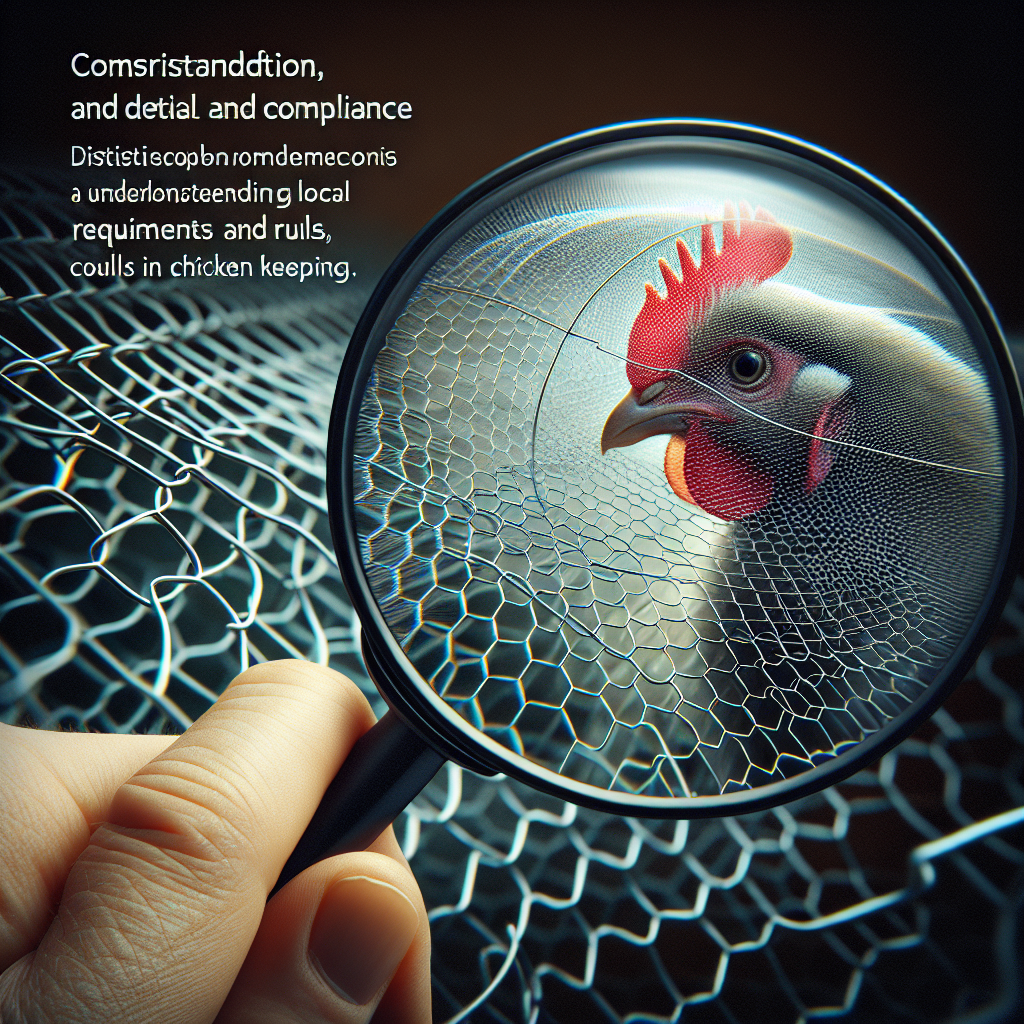So you’ve decided to embark on the rewarding adventure of raising chickens. Congratulations! But now you find yourself wondering, how do you handle and bond with these feathered friends when you’re just starting out? Fear not, for in this article, we will guide you through the process of establishing a strong connection with your chickens right from the beginning. From gentle handling techniques to tips on building trust, you’ll soon be well on your way to forming a nurturing and joy-filled relationship with your newfound flock.
Understanding Chickens’ Behaviors
Chickens have their own unique ways of communicating and expressing themselves. By learning to interpret their body language, you can gain a deeper understanding of their needs and emotions. For example, when a chicken is content and relaxed, they may exhibit behaviors such as preening their feathers and softly clucking. On the other hand, if they feel threatened or stressed, they may puff up their feathers and make louder, more aggressive noises. By observing and understanding their body language, you can ensure that you are meeting their needs and providing a safe and comfortable environment.
In addition to body language, it’s important to observe the flock dynamics at play within your chicken coop. Chickens have a hierarchical social structure, with a pecking order determining the position of each individual in the hierarchy. When introducing new chickens to an existing flock, it’s essential to monitor their interactions and intervene if any aggression or bullying occurs. By observing these flock dynamics, you can ensure a harmonious environment where all chickens feel safe and secure.
Understanding chickens’ natural instincts is also crucial in providing them with the care they need. Chickens are both prey and flock animals, meaning they have a natural instinct to seek safety in numbers and to be on the lookout for potential threats. By understanding this instinct, you can create an environment that mimics their natural habitat, providing them with places to hide, perch, and roam freely.
Creating a Safe and Comfortable Environment
To ensure the well-being of your chickens, it’s important to provide them with a suitable shelter. A chicken coop should be well-ventilated, sturdy, and predator-proof. It should have enough space for your chickens to roost comfortably, lay their eggs, and move around freely. Additionally, bedding materials such as straw or wood shavings should be provided to keep the coop clean, dry, and comfortable for your chickens.
Maintaining proper sanitation within the chicken coop is essential for their health and well-being. Regularly cleaning out the coop and replacing soiled bedding will help prevent the build-up of bacteria and parasites. Providing a dust bath area is also important, as chickens instinctively bathe in dust to keep their feathers clean and remove excess oil.
Adequate space and ventilation are essential for the health and happiness of your chickens. Overcrowding can lead to aggression, stress, and the spread of diseases. Ensuring that your chickens have enough space to move around freely and stretch their wings is crucial. Ventilation is equally important to maintain fresh air circulation and control humidity levels within the coop.
Feeding and Watering Your Chickens
Choosing a suitable feed for your chickens is essential for their nutrition and overall health. A balanced chicken feed should contain a mix of grains, protein, vitamins, and minerals. Consult with a local feed store or veterinarian to determine the best feed options for your chickens based on their age and purpose (whether they are layers or meat birds).
Establishing a feeding routine is important for your chickens’ well-being. Providing consistent mealtimes helps them develop a predictable routine and ensures they are receiving the proper nutrition. It’s recommended to feed your chickens twice a day, once in the morning and once in the evening. This routine will not only keep their digestive system functioning optimally but also make it easier for you to monitor their appetite and overall health.
A constant supply of fresh water is vital for your chickens’ hydration and overall health. Check their water source regularly to ensure it is clean and free from debris. During extreme weather conditions, such as hot summers or freezing winters, it’s important to monitor the water supply more frequently to ensure it remains available and accessible to your chickens.
Gentle Handling and Approach
Approaching chickens slowly and calmly is key to gaining their trust and minimizing stress. Sudden movements or loud noises can startle your chickens and make them feel threatened or scared. By taking your time and approaching them in a calm and gentle manner, you’ll create a positive association and build a bond based on trust.
When handling chickens, use a gentle and confident touch. Support their body with both hands and avoid gripping or squeezing them tightly. This will ensure their comfort and reduce the risk of injury. Some chickens may initially be wary of being handled, but with patience and gentle handling, they will become accustomed to it over time.
Rewarding positive behavior is an effective way to reinforce good habits and strengthen the bond between you and your chickens. For example, if a chicken willingly approaches you or allows you to pick them up without resistance, offer them a small treat or a few grains of their favorite feed. This positive reinforcement will encourage them to repeat the desired behavior and associate it with a reward, making the bonding process smoother and more enjoyable for both of you.
Establishing Trust and Building a Bond
Spending time near your chickens is a crucial step in establishing trust and building a bond with them. Sitting nearby and observing their behavior allows them to become familiar with your presence and feel more comfortable around you. Over time, they will associate your presence with safety and companionship.
Offering treats and food by hand is another effective way to build trust and strengthen the bond. Start by tossing small treats towards your chickens, gradually bringing your hand closer to them. Eventually, they will feel comfortable eating from your hand, which strengthens the bond between you. This positive interaction also helps them associate you with positive experiences and builds their trust in you as their caregiver.
Engaging in gentle interactions with your chickens, such as softly talking to them or gently stroking their feathers, can help strengthen the bond between you. Each chicken has its own unique personality, so it’s important to observe and respect their individual preferences for interaction. Some chickens may enjoy being gently petted, while others may prefer to be left alone. By respecting their boundaries and preferences, you can build a bond based on mutual trust and understanding.
Keeping an Eye on Their Health
Regular health checks are important to ensure the well-being of your chickens. It’s essential to monitor their overall appearance, behavior, and appetite. Look for any signs of illness, such as lethargy, loss of appetite, labored breathing, or changes in feathers or droppings. Early detection of health issues can help prevent the spread of diseases and ensure prompt treatment.
Monitoring for signs of illness or stress is crucial, as chickens are vulnerable to a variety of health issues. Stress can arise from factors such as overcrowding, inadequate nutrition, extreme temperatures, or exposure to predators. By regularly monitoring their behavior and environment, you can identify and address any potential stressors and ensure a healthy and happy flock.
If you notice any concerning signs or symptoms, it’s important to consult a veterinarian who specializes in poultry. They can provide expert advice, diagnose any health issues, and recommend appropriate treatment. Regular check-ups with a veterinarian can help ensure your chickens’ long-term health and well-being.
Preventing and Addressing Aggression
Identifying and addressing aggression early on is essential for maintaining harmony within your flock. Chickens can display aggressive behavior due to various reasons, such as establishing dominance, protecting resources, or lack of space. By closely monitoring their interactions, you can intervene and prevent potential harm.
Providing enough resources, such as food, waterers, and nesting boxes, is important to minimize aggression within the flock. When resources are limited, chickens may become aggressive towards each other in an attempt to establish dominance or secure their share. Ensuring an adequate number of resources will reduce the likelihood of aggression and ensure a peaceful coexistence.
If aggression becomes a persistent issue, separating aggressive chickens from the others may be necessary. This can be done by creating a separate enclosure or introducing dividers within the coop. This separation allows the aggressive chicken to calm down and prevents further aggression towards the rest of the flock. Over time, reintroducing them to the main flock can be attempted under supervised conditions.
Socializing and Integrating New Chickens
Introducing new chickens to an existing flock requires careful planning and gradual integration. Quarantining new chickens before their introduction is critical to prevent the spread of diseases. This quarantine period allows you to observe their health and behavior closely while ensuring they don’t pose any risks to the existing flock.
Gradually introducing new chickens to the flock minimizes the chances of aggression and stress. Start by placing the new chickens in a separate enclosure within sight of the existing flock. This allows them to become familiar with each other’s presence without direct contact. After a week or two, you can introduce them physically, ensuring supervision to prevent aggressive interactions.
During the integration process, monitor the chickens for any signs of aggression or stress. If aggressive behaviors persist despite gradual integration, you may need to separate them temporarily and repeat the integration process at a slower pace. Patience and careful observation are key to successful integration and creating a harmonious flock.
Training Your Chickens
While training chickens may not be as common as training other animals, it can greatly benefit their well-being and your interaction with them. Chickens are intelligent animals and can learn basic commands and behaviors through positive reinforcement methods.
Using positive reinforcement methods involves rewarding desired behaviors with treats or praise. For example, you can teach your chickens to come when called by associating a specific word or sound with a treat. By consistently rewarding them whenever they respond to the command, they will gradually learn to associate the command with the reward and repeat the behavior.
Teaching basic commands and behaviors can also be done through repetition and consistency. For example, you can teach them to perch on command by gently guiding them onto a perch and rewarding them when they stay there. With practice and reinforcement, they will learn to associate the command with the action and respond accordingly.
Regular training sessions are crucial for reinforcing learned behaviors and developing new ones. Keep the sessions short and engaging, as chickens have a relatively short attention span. By incorporating training into their daily routine, you can strengthen the bond between you and your chickens while ensuring their mental stimulation and overall well-being.
Handling Challenges and Unexpected Situations
Challenges and unexpected situations can arise when caring for chickens, but maintaining a calm and confident demeanor is essential. Chickens can pick up on your emotions and respond accordingly. By staying calm, you can help reassure them and prevent unnecessary stress.
Seeking advice from experienced chicken keepers or joining online communities can be valuable in navigating challenges and unexpected situations. Connecting with fellow chicken enthusiasts can provide support, helpful tips, and shared experiences that can benefit both you and your chickens.
Staying aware of local regulations and restrictions is important for responsible chicken keeping. Different areas may have specific rules regarding the number of chickens allowed, noise restrictions, or the distance between coops and neighboring properties. By familiarizing yourself with these regulations, you can ensure that you are in compliance and maintain a positive relationship with your neighbors.
In conclusion, handling and bonding with chickens when starting out requires patience, observation, and understanding. By learning about their behaviors, creating a safe environment, providing proper nutrition and care, building trust, and remaining proactive in monitoring their health and interactions, you can establish a strong bond with your chickens. Remember that each chicken is an individual, so it’s important to respect their preferences and personality. With time and effort, you’ll create a harmonious and rewarding relationship with your feathered friends.




